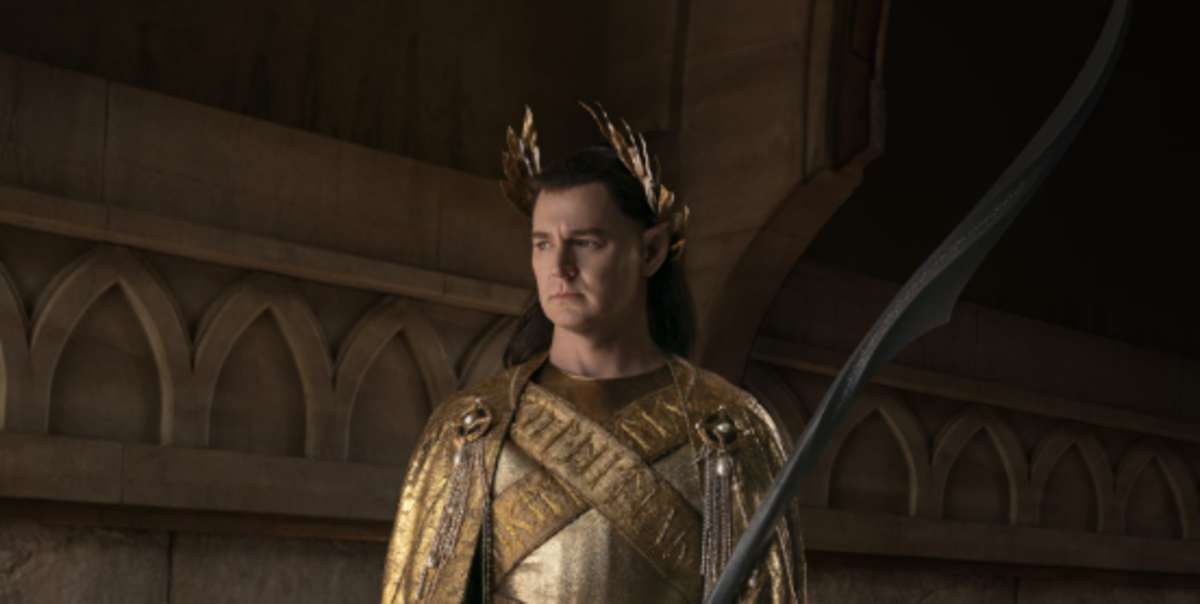'LOTR: The Rings of Power' gave one elf way too much authority, and Season 2 must fix that

LOS ANGELES, CALIFORNIA: Despite mixed reviews for its first season, 'The Lord of the Rings: The Rings of Power' is moving forward with Season 2, as Amazon had already committed to a multi-season series.
To address fan concerns, the showrunners have promised to correct lore mistakes and stay true to Tolkien's source material. This is a step in the right direction, as inaccuracies and deviations from the original story were major complaints about Season 1.
One notable criticism was the excessive authority given to High King Gil-galad, which blurred the lines between Elven and Valar powers. This change altered the Elves's storyline in 'The Rings of Power' and didn't sit well with some fans.
How are the Elves and Valinor are presented in 'The Lord of the Rings'?

In 'The Lord of the Rings' lore, Elves first awoke in Middle-earth before time began. With the Valar's guidance, they eventually reached Valinor, where they lived for thousands of years.
However, Morgoth's destruction of the Two Trees and murder of High King Finwë disrupted this peaceful existence. Fëanor's quest for revenge led the Noldor to leave Valinor, but they did so under the Doom of Mandos, which foretold their failure and barred them from returning to Valinor.
This exile lasted throughout the First Age until Eärendil used a Silmaril to return to Valinor and seek forgiveness. The Valar pardoned the Elves and aided them in defeating Morgoth in the War of Wrath.
With Morgoth defeated, the Valar lifted the Doom of Mandos, allowing Elves to return to Valinor if they chose to. While many stayed in Middle-earth, the door to Valinor was reopened for those who wished to return.
How did 'LOTR: Rings of Power' give Gil-galad too much authority?

'The Rings of Power' subtly referenced the Elves's exile from Valinor without directly mentioning the Doom of Mandos. However, the show implied that Elves couldn't freely return to Valinor, instead needing to earn their way back.
This departure from 'The Lord of the Rings' canon put High King Gil-galad in a position of authority, deciding who was worthy to return. Elrond's conversation with Galadriel highlighted this, emphasizing Gil-galad's approval as a one-time honor.
This portrayal raised eyebrows, as it seemed to suggest Elves lived to earn redemption, with Gil-galad holding unprecedented power. Another instance of Gil-galad's exaggerated authority occurred when Celebrimbor planned to create a mithril crown for him, symbolizing his role as the Elves's savior.
Although Gil-galad initially hesitated, Elrond's persuasion almost convinced him to accept the responsibility. These moments aimed to showcase Gil-galad's importance but ultimately granted him too much authority, deviating from Tolkien's original vision.
How can 'LOTR: Rings of Power' Season 2 fix Gil-galad's power trip?

'LOTR: The Rings of Power' Season 2 can rectify the authority imbalance by reimagining Gil-galad's powers and emphasizing the Valar's role in Elven affairs.
By introducing the Valar's guidance and limitations on Gil-galad's decisions, the show can restore the original lore's balance. This could involve depicting Gil-galad seeking the Valar's counsel or facing consequences for overstepping his bounds.
Additionally, exploring the Elves's connection to the Valar and their own agency in their destiny can help shift the focus away from Gil-galad's authority.
By making these adjustments, 'LOTR: Rings of Power' Season 2 can better align with Tolkien's universe and provide a more authentic representation of Elven society.
'LOTR: Rings of Power' Season 2 trailer
'LOTR: Rings of Power' Season 2 is set to premiere from Thursday, August 29










